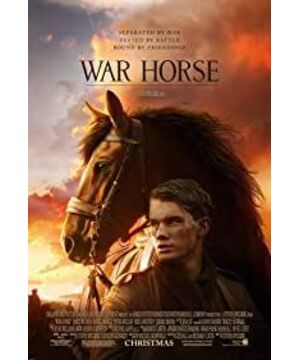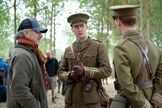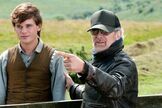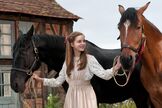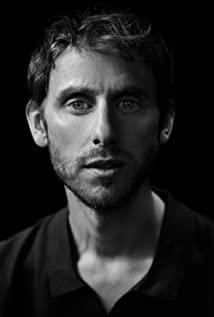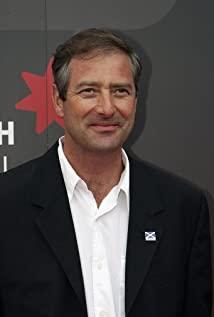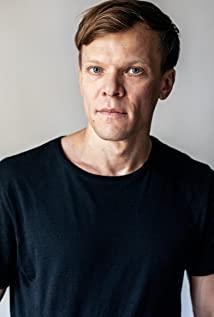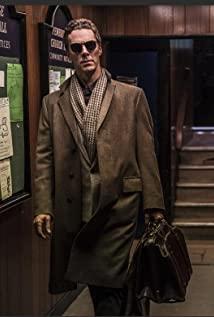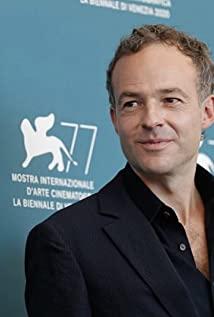War Horse is based on the novel of the same name, directed by Steven Spielberg and released in 2011. It mainly tells the story of a horse named "Joey" who was domesticated by the young Albert from a young age. During the First World War, he was forced to separate from Albert and became a war horse on the battlefield. During the war, he was constantly transferred to various countries. The story of someone who survived the war and returned to Albert's side.
"War Horse" is similar to Spielberg's traditional film style, both carefully telling a complete story while reflecting the truth, goodness and beauty of human nature, and like "Schindler's List" and "Saving Private Ryan" The main purpose is to oppose war. In "War Horse", when the British and German armies stopped fighting, a soldier on each side took the initiative to try to rescue Joey. The peaceful way decides where Joey belongs. The humorous conversation between them is similar to that of the American soldiers who stumbled upon each other and then opened fire in "Saving Private Ryan" when they stumbled upon the German soldiers hiding in the rubble. They are witty and ironic, showing the absurdity of war. The two warriors in "War Horse" could have become very good friends, but because of their different camps, they eventually became enemies who were about to kill each other. There are scenes of war in "War Horse" and "Saving Private Ryan", but "War Horse" is based on the story because it is rated by PG, and lacks the shocking and bloody scenes in "Saving Private Ryan" scene, which makes the whole film tend to be plot and warm, rather than mainly depicting war scenes. In addition, most of the war scenes of the American and German armies in "Saving Private Ryan" tend to be close-ups of the faces of the US military and back-to-back follow-ups. In the filming, "War Horse" is a medium and long-term perspective that chooses to use the side of the British army: this reflects the director's different positions on the two camps. The former is from the position of the US military, reflecting the spiritual strength of the Americans and their heroism when facing the enemy. , while the latter more objectively reflects the fierceness and cruelty of the war, while avoiding overly obvious positive and negative positions. However, choices such as "War Horse" will lead to the audience's uncertainty about their position, thus reducing the deeper emotional experience.
"War Horse" takes the war horse Joey as a clue, and tells the story of Albert, the captain of the British cavalry, the German brothers, Emily and grandpa, the German horse trainer. So the protagonist of this movie can be said to be this handsome horse. However, this will make the dramatic contradictions of the film not large enough, the emotional expression not sincere, and the character creation not comprehensive enough, so that the audience will easily be confused about the primary and secondary, and will not have feelings for every character that appears. In addition, the film is not successful enough in shaping the character of Joey's horse, because it can only be forced to change owners and jobs constantly due to external reasons, and it is difficult for Joey's various behaviors to reflect its character. Therefore, the setting of the protagonist in the film is relatively unsuccessful.
The picture of "War Horse" first begins with the blue sky and green countryside in the early morning. The aerial perspective shot is constantly advancing and switching, which explains the place where the story takes place, and also means that the life and story of the protagonist Joey will begin here. ; and the sunset red tone scene at the end shows the approaching end of the story and the completion of Joey's life mission. The whole story begins and ends as if from sunrise to sunset, which fits with the open narrative structure (the main narrative). In the film, when Albert's father took Joey home for 30 bucks, the mother began to blame his father, and at the same time there was humorous music, which enhanced the sense of the story and showed a happy family, and then Albert When reassuring his mother that he will train Joey, the music turns softer, showing Albert's confidence and perseverance and trust in Joey. The music of Albert's domestication of Joey is laid-back and relaxed, showing the friendship between Albert and Joey that is slowly beginning to develop, as well as the freedom and comfort of childhood when Joey and Albert were together. When Joey understood Albert After saying "You are the hope of our family's survival", he rushed to the farmland in the heavy rain, and began to play passionate and powerful music, similar to the music of Joey running on the battlefield later, reflecting Joey's Brave and tenacious. The shot of the captain of the cavalry (Hiltson) fighting the enemy on the lawn starts from the close-up of the German machine gun, to the close-up of the captain on the horse. At this time, the picture is upgraded and the live music disappears, so that the audience can notice the captain's movements. and expressions, showing the captain's foreknowledge of his fate on the battlefield, and the camera immediately switches to Joey flying into the forest alone, so the switching of the three sets of shots directly shows the captain's process from life to death, reflecting the Due to the impermanence and fragility of life, people cannot change their fate of being alive or dead in the slightest in war. No matter how young and brave soldiers are in the face of bullets, they only die in a short period of time, which shows the cruelty of war. When the two German brothers were executed on the lawn, a windmill swing appeared in the picture, which not only increased the depth of the picture, but also skillfully covered up the bloody scene of killing and deserting soldiers. Get used to it. When the British soldiers led Joey back into the trenches, the shot of him was an overhead shot, which reflects his bravery and his status as a symbol of peace, which fits with the anti-war theme of the film. A follow-up and facial close-up of Albert after he entered the enemy trenches, allowing the audience to see that even the brave warrior is still full of fear in the face of the unknown war of life and death. When Albert whistled to call Joey at the barracks, there was a (subjective) shot where the soldiers on both sides in front looked at him and gave way to the side one by one. Walking out alive, the soldiers next to him are gradually moving away from the scene is similar, and they all have a shocking heroic spirit. (Albert's blindfolded appearance in "War Horse" resembles Wade in VR in "Ready Player One")
In the scene where the little girl Emily thinks her grandfather is cowardly and afraid to resist the German army, the shot of the two people starts with a medium shot, and the grandfather says, "There is a kind of carrier pigeon, which has received orders from the beginning of the war, but it I don't know why it is going to the distance, it can only keep flying over the battlefield, over fear and pain, just to go home. What can be more brave than it?" During this process, the camera began to slowly pull in and turn into a close-up, It shows that the most real thoughts in Grandpa's heart are slowly being expressed. Emily's camera also turned to a close-up of tears, which also showed that she could truly understand her grandfather from the bottom of her heart. This line of grandpa can also be regarded as the core of the whole movie. The carrier pigeon is like a grandfather. Emily's parents were killed by the German army, so Grandpa's only relative was Emily. He didn't want to lose more, so he chose stoicism instead of revenge when facing the German army. And lost his last relative in the world, so he is very brave. The carrier pigeon is also like the war horse Joey: he was forced to rush to the battlefield because he was a bargaining chip for Albert's father's debt. He can only fully trust his master, he saved his friend the dark horse at a critical moment, and after his friend died, he leaped over the tank, rushed to the battlefield, and faced the fear in his heart, when he was in the barracks when Albert whistled to him He still ran into his arms just like the hour, and together with him fulfilled the vow of "no matter where you go, we will meet again". When Grandpa was about to take Joey, Joey broke the reins and ran to Joey, because he spent his whole life just to go home. Carrier pigeons are also like dedicated warriors on the battlefield. They only receive orders from the state and go to the battlefield to fight with the enemy. They are afraid of death in their hearts, but they still face it directly. They also only want to go home, to get redemption, to get their spiritual belongings. Everyone who only wants to go home is the bravest.
When I saw Joey run towards the blindfolded Albert despite the pain in his body, I realized that this horse really has a soul.
View more about War Horse reviews


